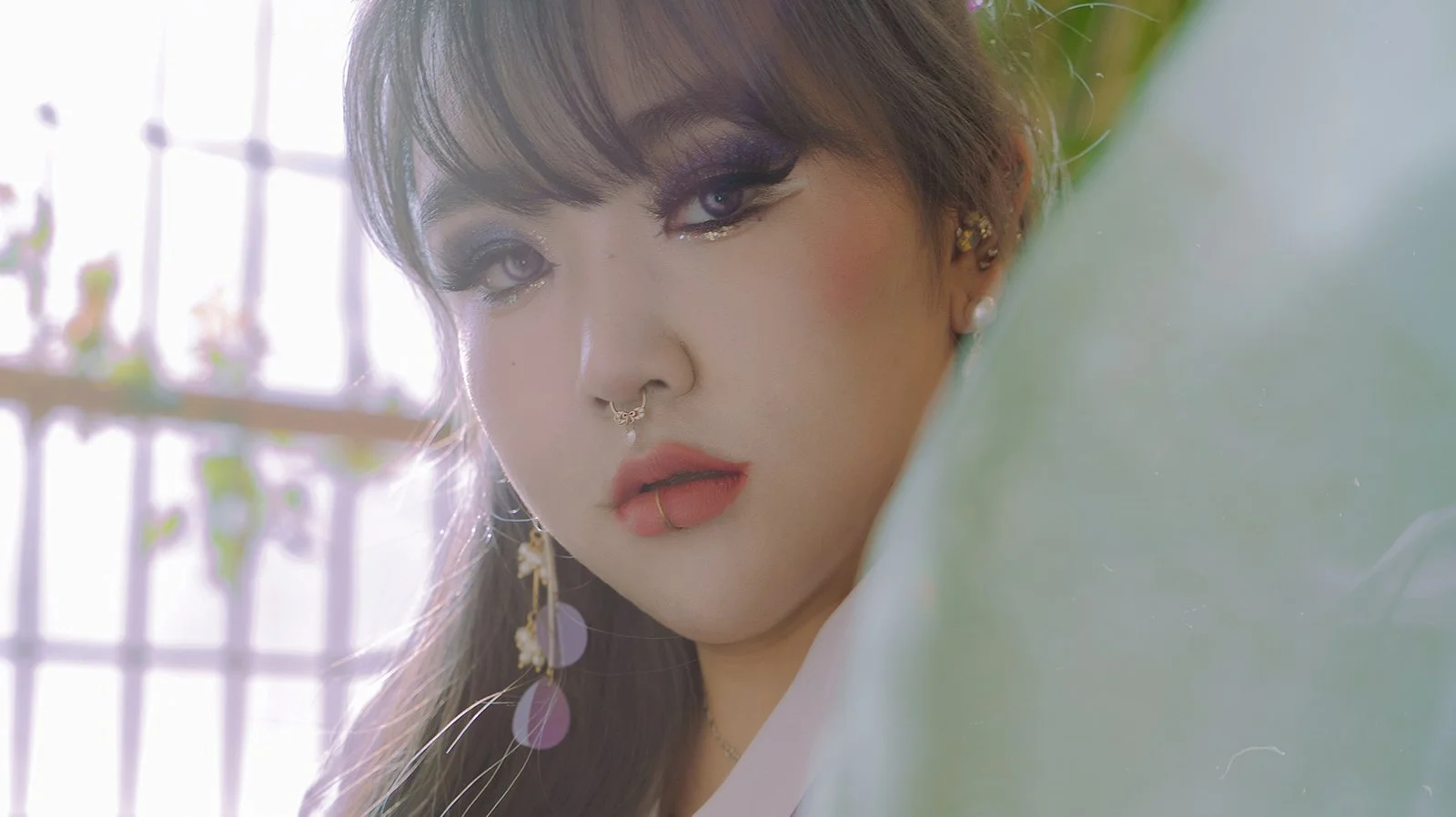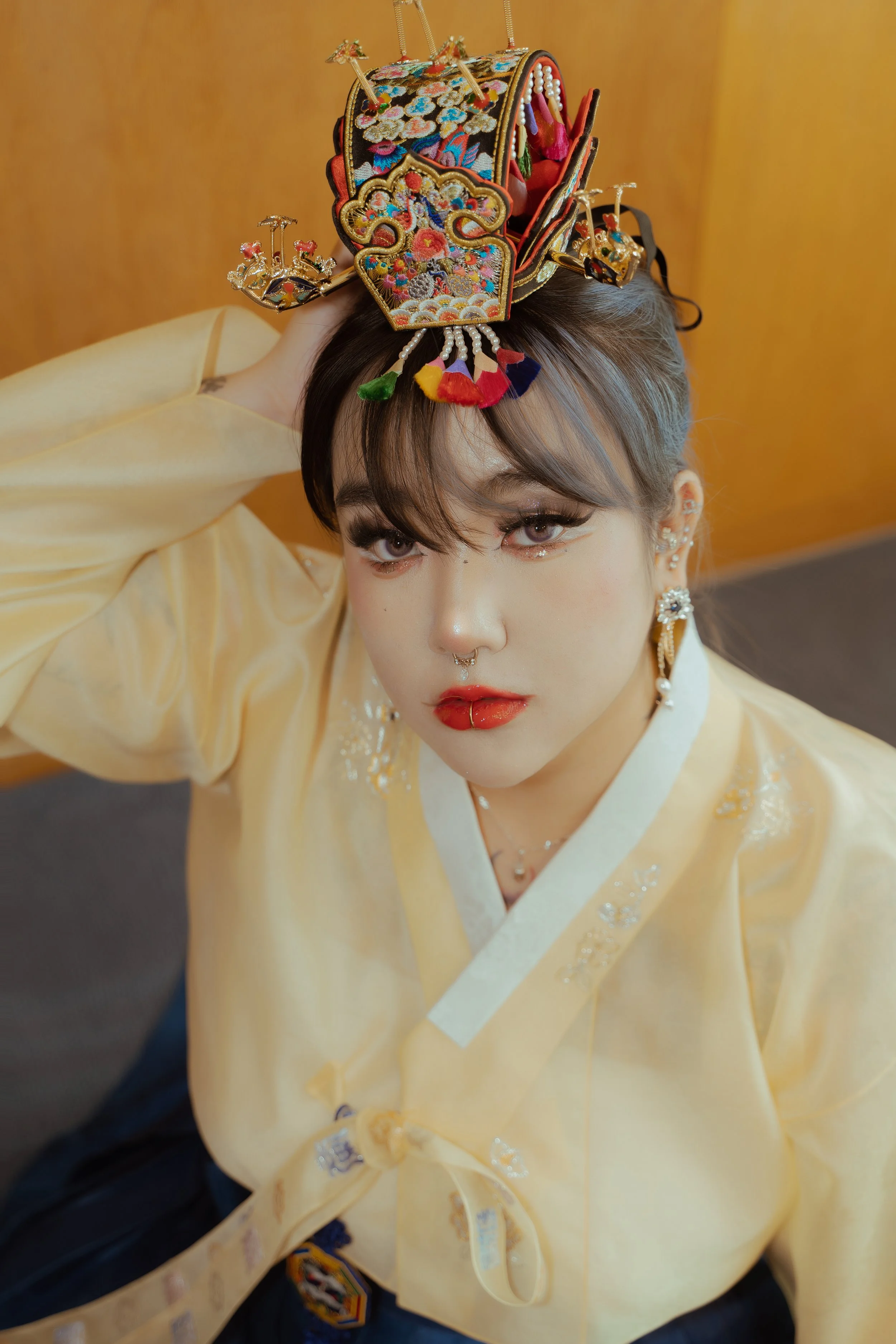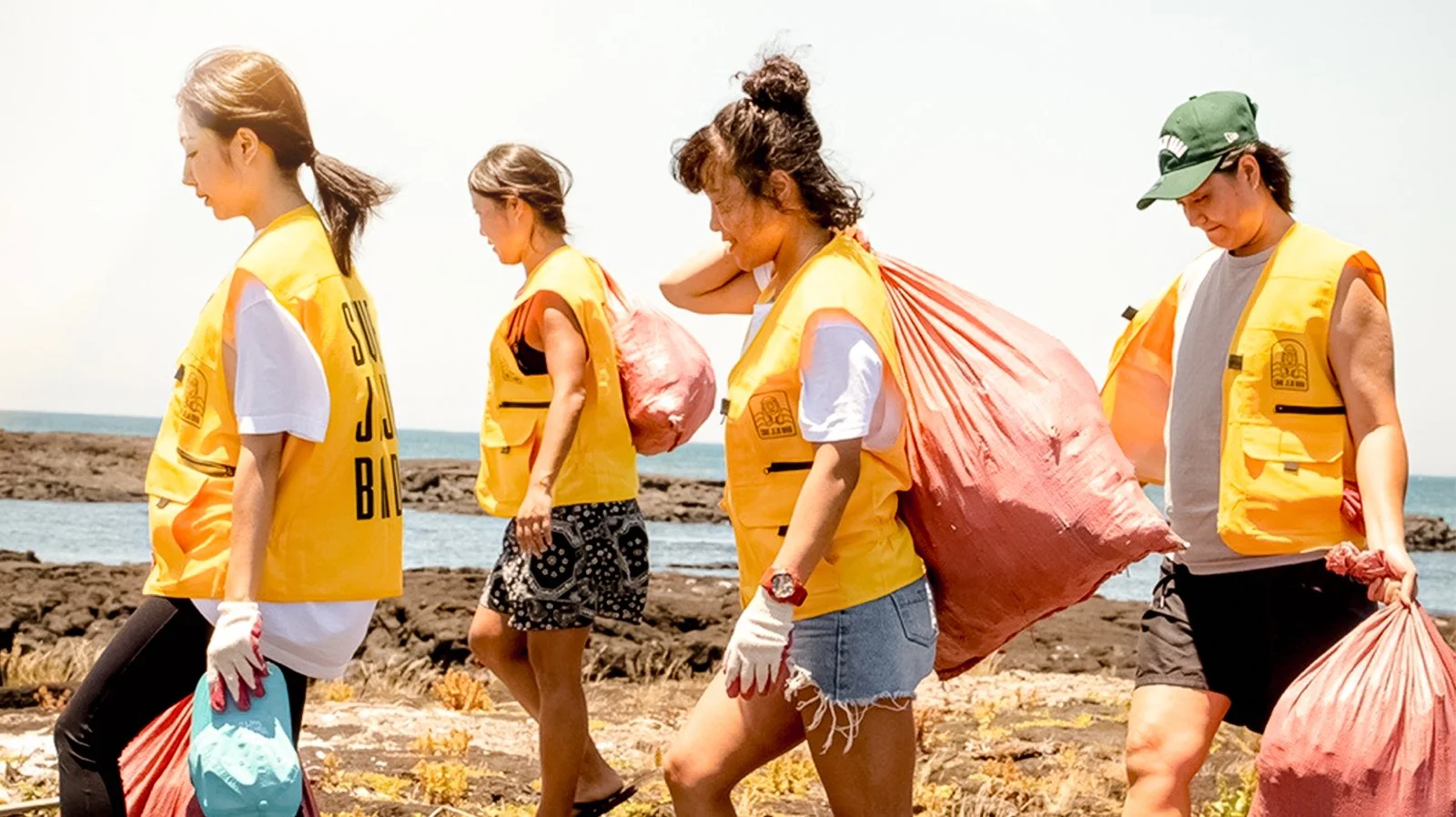Sustainability and body positivity with Catharina Yul Hur
By Morgan Saylor (@morgan_saylor)
In March 2020, Catharina got on a plane to return to Korea with only one thing on her mind: anger. Years of built-up resentment towards an industry that had excluded and otherised her body type pushed her to take matters into her own hands. "I always liked wearing hanbok, and ever since I was young, there were a lot of occasions where I had to wear it," says Catharina, "However, the hanbok I had would barely fit me, if at all. Two years ago, one brand I liked put up a new design and said, 'we're going to make it in a bigger size.' So I was excited. I was like, 'Oh my god, finally.' But that year, the cherry blossoms bloomed earlier than expected, and they had to rush to get orders out. So they made an announcement that said, 'We're going to have to cancel the big size production.' That hurt because it was like, I understand that people want to go get their pictures, but only small people get to enjoy it. It also didn't make sense because they make big sizes for men, just not for women. I was like, 'fuck it, I'll make it myself,' and I got on a plane back to Korea that day. So that was how it started, with anger."
The idea for Hoya Seoul was born, but Catharina aspired to be more than a clothing brand; she wanted to make a statement, change the industry and push boundaries. "As a queer woman, I've always been an LGBTQ+ and feminist activist. Naturally, through activism, you get exposure to new ideas and information, and I became interested in environmental activism as well. The fashion industry takes a lot of responsibility for destroying the Earth, says Catharina. In fact, 85% of all textiles end up in landfills each year. The microplastics from microfibres, such as polyester, that end up in the ocean are estimated to be the equivalent of 50 billion plastic bottles. "So when I started this, I wanted to create something that people can wear sustainably."
"When I first started, I went to the traditional market where they have hanbok fabric vendors. They were pushing me like, 'oh, get the polyester," continues Catharina, "I wanted something natural, and I just happened upon this vintage fabric hidden in the corner. It was one hundred percent silk and upcycled from ten or twenty years ago. They told me it was not getting sold because the style back then was more flashy. This fabric had a lot of floral patterns, cranes, and butterflies whereas the modern style is more basic." Catharina was drawn to the luxurious fabric because it represented the rebellion in the industry that she was trying to incite. "Plus-sized women are taught to wear black or basic colours t look slimmer. I wanted to encourage people to wear flamboyant colours and patterns. Style is for everyone; beautiful clothes belong to every body type."
With the fabric secured, Catharina was ready to bring Hoya to life, but how well would it be received in a society that has historically excluded bigger-sized bodies? While Korea has started to embrace the body positivity movement, the beauty industry is still quite unforgiving, classifying the 'ideal' weight for women as 56kg. "So Korea definitely has a stringent beauty standard,' says Catharina, "When I was in my early twenties, I always had to order clothes from overseas. The judgment and online harassment I experience in Korea is, sadly, much worse than outside." She explains that this greatly impacted how she viewed herself in her earlier days. "I tended to look down when I walked around. I didn't want people to see my face. If somebody looked at me, I would immediately feel anxious, 'What is that person thinking? It's probably about my body and my weight.' Now I don't care about what other people say, but the fatphobia you experience within your family, that's the worst. Korean families tend to be strict, which has affected me negatively."
Catharina would go on to describe the relationship with her family as strained. "The first time I went viral on TikTok was talking about my fatphobic family. It got over six hundred thousand views. I was crying in the video because I had come to Korea with this idea, and the first thing I heard from my family was, 'Oh, you got fatter.'" Catharina has since become well known on the platform for being open about her struggles with mental health. "I just try to be as honest as possible, it's a common issue, and I don't think you need to hide it." Members of the LGBTQ+ community, those struggling with mental health, and plus-sized people from around the world have found what they consider a safe space in her brand. "I get to see so many different representations when people tag us online, and that's amazing. Sometimes it will be like a Korean woman, a German nonbinary person, an American transgender person, men, women, anyone. The customers are all so different, but we all have one thing in common, we love hanbok."
Although Hoya's hanbok are designed as modern wear, recently, Catharina has found herself at the centre of a cultural appropriation debate online. "I think it's a complicated topic, and I cannot give you a clear," she says. "Koreans will see a foreigner wearing a modernised hanbok and say, 'Oh, it's great that you are taking part in this culture and wearing our traditional clothes,' but then you will have people in like America or Europe who feel differently. What I want to say is do some research. Wear the clothing respectfully. If you make a mistake, learn from it. I had a customer wear my hanbok with a Japanese umbrella and went to Chinatown to take a photo. When I told them this was not respectful and pointed out why, they apologised and changed deleted the post. I think it's all about ensuring you wear the clothing respectfully."
Catharina’s message to the world is simple: clothes are supposed to fit you; you're not supposed to fit them. "Fuck that. I wasted so many years trying to lose weight to fit into hanbok until I realised it was absurd." When asked about what she sees for herself and her brand in the future, she states, "I want us to expand to be even more inclusive. I want to look for models so I can use their measurements to design up to four extra-large to six extra-large sizes. I also want to make the brand more gender-neutral. The hanbok trousers we recently came out with were a push toward that".
"I want to just stop giving a fuck," she says about her own future. "Like, every time one of my videos gets popular, it can be overwhelming. And there's obviously some negativity. I can read one hundred supportive comments and pick out the one bad one, and it ruins my day. I had to take two weeks off TikTok after my last panic attack. I just want to stop giving a fuck and spread more positivity."








